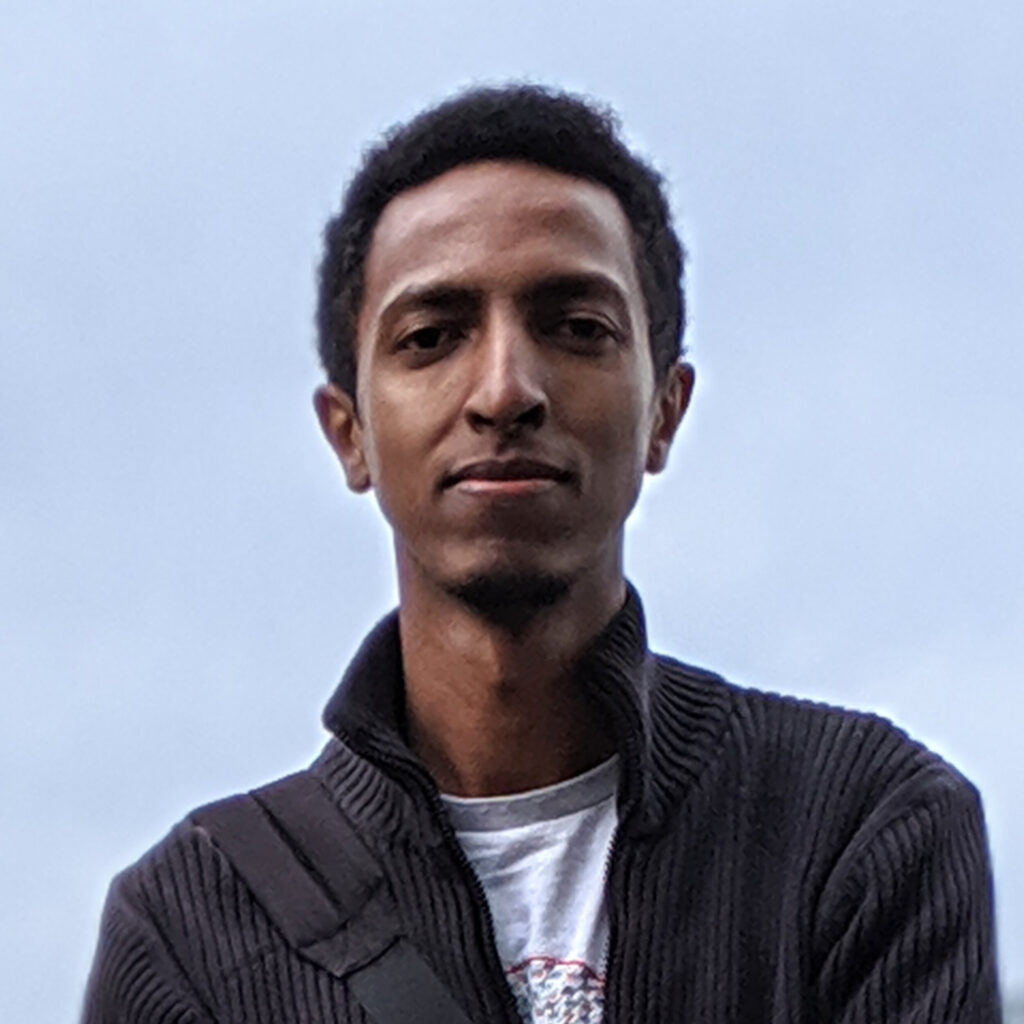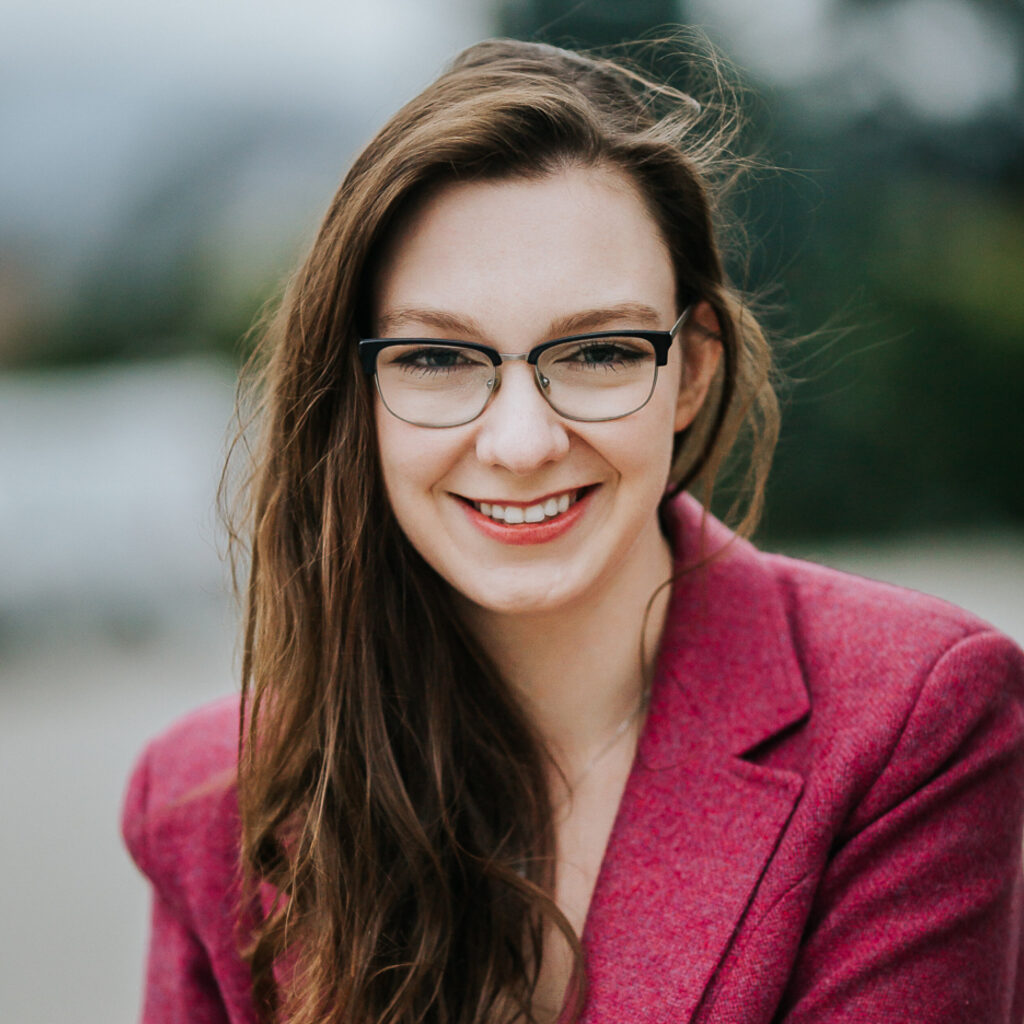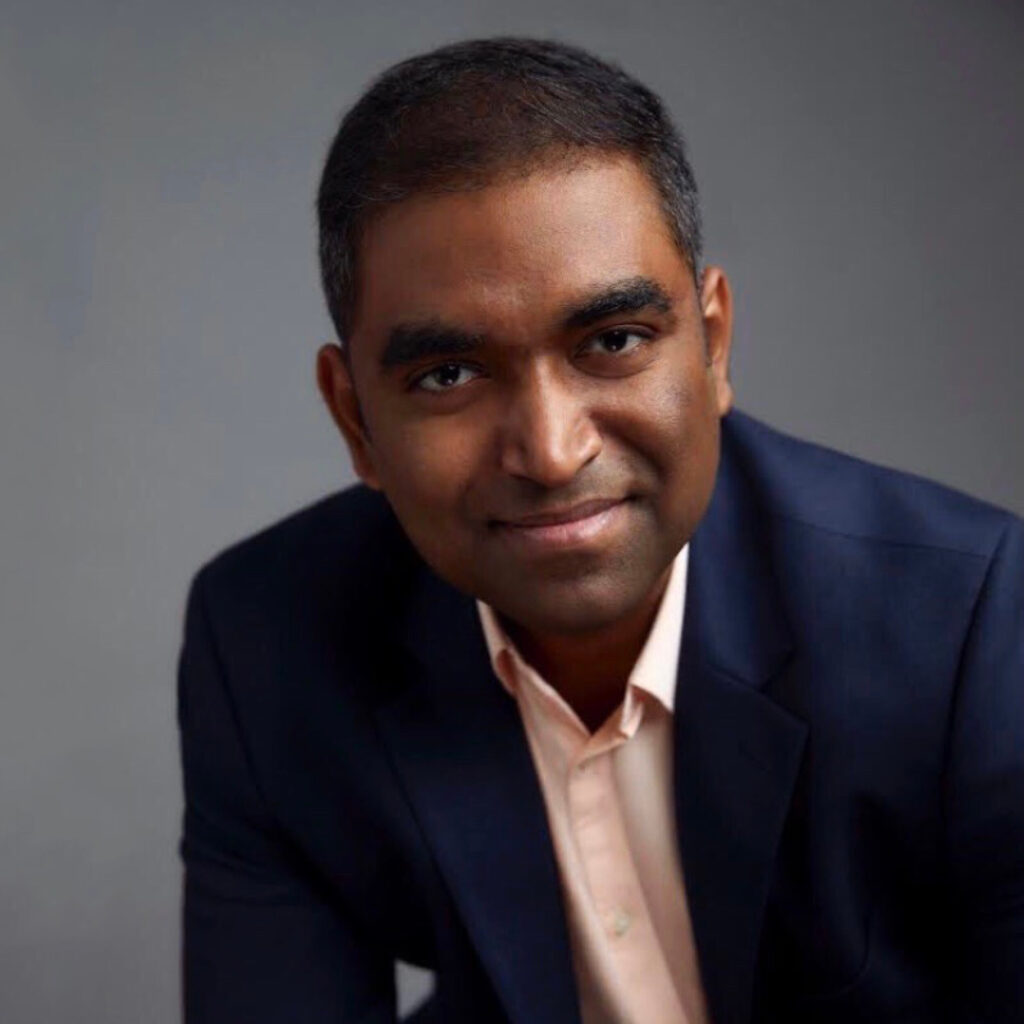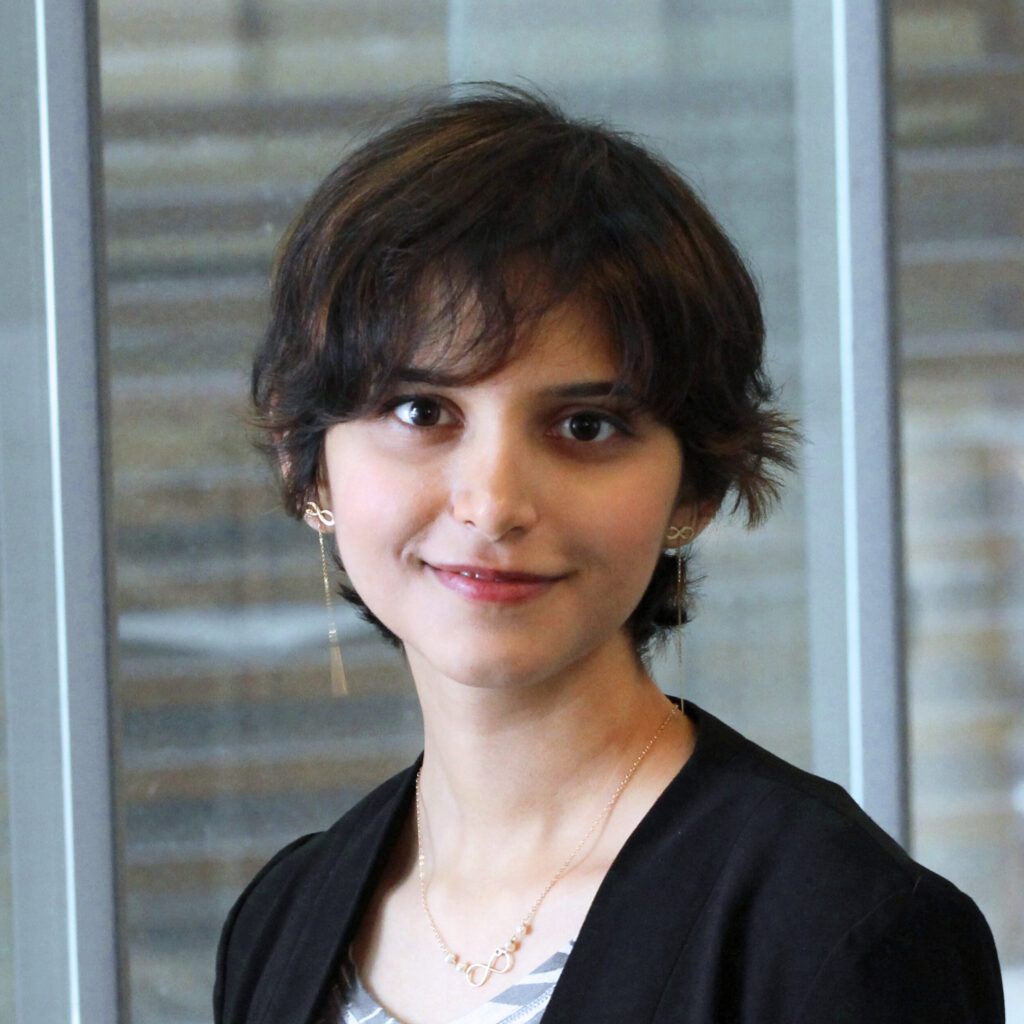Last Wednesday, 54 Master of Science in Applied Computing (MScAC) students from the University of Toronto celebrated their graduation in a virtual convocation ceremony. MScAC and the Department of Statistical Sciences spoke with four graduates on their experiences during their time in the program as well as their passions and motivations for pursuing a Master’s degree in Applied Computing.
Abenezer Teklemariam
-
Machine Learning Engineer, Synex Medical
-
Major in Engineering Physics, University of British Columbia, Canada
-
Recipient of the 2020 ARIA Student Innovation Award

Prior to the program, what was your educational background?
I have an undergraduate degree in Engineering Physics from the University of British Columbia. I had a variety of interests, with a focus on Physics and Math, before applying to the program and MScAC helped focus my interests towards Bioengineering and Biomedicine, where I was able to leverage my academic background in Engineering.
Coming from a learning experience in Vancouver, what were some of the differences studying in Toronto?
The sheer fact that the St. George campus is located downtown already makes a difference in the overall experience. Things feel like they’re at a much faster pace in Toronto, whereas Vancouver has that laidback, West Coast vibe. Which is not a bad thing wherever you choose to study! But for this program in particular, I commuted into downtown Toronto. So en route to campus, you can see how close in proximity you are to major tech companies and in that sense, you feel like you are already part of that industry even though you’re technically still going to school.
What made you want to apply to the MScAC program?
When I decided to go back to school and do my Master’s, the major goal was to make a pivot from what I was doing career-wise into roles where I can use my background in Physics and Mathematics and be more involved in research. I also wanted to pursue Applied Research specifically and apply to a program that connected us to various industries. I’ve worked in enough labs previously to know that I did not want to pursue a Master’s degree that was purely research-based, which is why MScAC was the perfect program to apply to. There were also connections in my background in Mathematics to Machine Learning, which was one of the research areas you could pursue in the MScAC program’s Applied Math concentration.
What were some of the best things about studying here at U of T and in the City of Toronto?
The whole fast-paced lifestyle living in the city of Toronto does help challenge your limits. You are always moving forward and adjusting your own personal goals, which is a good thing. Specifically in the program, it was the people that I spent my time with that put me in a very supportive environment and we had a lot of overlapping interests in terms of what we wanted to accomplish. There was also a certain level of maturity being around people who knew what they wanted to do without any competitive pressure. Having that connection has been very instrumental.
You worked at Synex Medical on an internship project that used algorithms in very practical applications involving biological signals in the human body. What impact would a project like this have on society?
The practical applications of this project allow people to respond, in real-time, to how well their body is doing. For example, if you’re an athlete who wants to keep track of your lactic acid levels in your body, or if you’re a diabetic who wants to keep track of your glucose levels, you now have real-time, actionable data that allows you to monitor the state of your body. We as a company are trying to make healthcare more proactive than reactive.
Any wise words for those considering applying to the MScAC program?
Make the most of your time in the program. While in the program, I was worried about applying to and landing an internship, despite reassurances that I would have an internship placement, so some of those worries hindered me from fully enjoying the full school experience. So, enjoy the program and make connections because at the end of the day, that is a significant chunk of the program and what you can get out of it!
Cara Alexander
-
Product Manager, Agnostiq
-
Double Major in Physics and Mathematics, University of British Columbia, Canada
-
Recipient of the 2020 ARIA Student Presentation Award

How did MScAC program get you to where you are today?
I have a background in Astrophysics and Medical Informatics, and I always really loved highly theoretical fields and quantitative sciences. After finishing my undergrad and working in research for quite a while, I realized during my career how passionate I was for helping people in more tangible ways. I wanted to find a way to be able to use my theoretical background in ways that were more tangible and people-centric. I saw the MScAC program as the perfect opportunity to take those technical skills and refocus them into a more applied, human-centric space, and that is exactly what it turned out to be.
What were some of the highlights you have working with Agnostiq, now that you have finished your internship and are now working there full-time?
Agnostiq is a growing startup, which is exactly what I was looking for because it allows you to have so much flexibility and variability in what you do everyday, and you get to see and understand the whole process when it comes to delivering high-tech solutions to customers in ways that are useful to them. It allows you to figure out the balance between being research-driven and being driven by customer needs, as well as the balance between existing software engineering and new research developments – all of this is a really cool mixture and I really enjoy playing with that.
What made you decide that the MScAC Program was the program you wanted to apply to?
The MScAC program and the University of Toronto have a renowned reputation in computing, so that was highly attractive. I also really loved that there was a specific program that allowed you to apply highly theoretical ideas versus programs that were either highly vocational or very theoretical, and neither of those really fit what I was looking for. There’s also a focus in creating a cohort of students and sending them through the program together; I think that’s something very beautiful that you would find in undergraduate studies that is sometimes lost in graduate studies and the learning is so much richer when you’re working through problems together as a cohort.
What were some of your favourite courses?
Professor Marzyeh Ghassemi taught a class called Machine Learning for Health and it was exactly what I came to U of T to do. It was an inspiring class; having worked in Machine Learning and Healthcare, it was fantastic to learn from her wealth of experiences and knowledge on this topic. She covered so many things that I have experienced in clinical settings and have run into problems with, and it was so valuable to see that she shared these experiences and had deep, philosophical viewpoints on them. Differential Privacy taught by Professor Aleksandar Nikolov was another class I really enjoyed. He has a real gift for communicating technical ideas, and it was a rare pleasure to learn from someone who has contributed so much to the field. I found the concepts so interesting and applicable in numerous areas of computing. I took the class not knowing what it was, and now I apply that knowledge in my job in ways that I didn’t expect.
What are some of your long-term career goals?
The area I’m working in right now is constantly evolving and even the job that I’m doing right now was one I didn’t even know existed. I want to remain flexible as technology continues to keep changing. Having said that, I want to focus on being a leader in taking the most cutting-edge, theoretical technologies out there, really understanding them, and making them accessible in a way that helps society. Technologies have the power to profoundly change the average person’s everyday life in ways that can be both positive and negative. We really need people who deeply understand these technologies and also take the time to consider how they can radically shape the human experience. Multidisciplinary intentionality is needed to pursue technologies in ways that help, not hurt.
Shakti Kumar
-
Research Machine Learning Scientist, Vanguard Investments Canada
-
Major in Computer Science, RV College of Engineering, India
-
Recipient of the 2020 ARIA Student Presentation Award

What made you apply to the MScAC Program?
The Department of Computer Science here at the University of Toronto has a very good reputation in Machine Learning. Many deep learning algorithms that are in use today were actually conceptualized here in this department. When I was applying for Master’s programs, most good programs followed a traditional Master of Science in CS with no apparent direct access to industries. MScAC was the only program that offered the opportunity to do full-time research and apply what you’ve learned directly with various industries as part of your graduate studies. It provided an opportunity to do some impactful research out there in the real world while still in graduate school. This was the major factor that attracted me to MScAC.
What were some of the things you enjoyed studying?
Coming into the program I wanted to explore different areas in Machine Learning. So I took courses like Uncertainty Modelling, Adaptive Intervention and Neural Networks. I really enjoyed taking open-ended seminar courses where you have to turn in a research paper at the end of the semester. The two seminar courses I took in the winter, Deep Learning and Imitation Learning, gave me the discipline and perseverance to practice research for a career. It was also during this time that I developed a strong interest in Variational Bayes and Transformers. I am sincerely grateful to the professors and everyone around here in MScAC for helping me figure out my interests during these early stages of my career.
What was your internship experience like with Vanguard Investments Canada?
I started my internship when the pandemic was on the rise here in Toronto back in May 2020. I was working with a team based in the Pennsylvania office so most of my meetings were virtual even if I was in our Toronto office. My internship experience was very good: we had frequent check-in calls with our supervisors and it felt like the authentic office setting, with people walking past our desks and having casual conversations. My supervisors made sure I was settled and had the right resources. Over time, we’ve gone from a mentee-mentor relationship to being very good colleagues and friends. The workload was very stimulating and doing applied research wasn’t any different than if you were to work on theoretical projects. It is very intense and you really have to put in the discipline and honest work to arrive at good results.
How has the MScAC Program help achieve your career goals?
I always wanted to pursue a career in full-time research. The fact that I work as a Research Scientist today can only be attributed to MScAC and the way this program has been designed. For the first eight months, you take the best lectures, with some leading professors in the world working in those areas, and when it’s time to interview for internships, MScAC invites many companies for you to connect with. It really gave me a spectrum of opportunities, ranging from Machine Learning research to Data Science roles. This myriad of opportunities provides you a very high chance of landing the exact job you’ve always wanted. During the program’s Applied Research Internship Expo (ARIE), we were told that it would probably be the only time in our lives where we would walk into a room full of companies and each single company would want to hear from us. And believe me, it couldn’t be truer. This program has given me the platform to launch my career. You make valuable industry connections and acquire the knowledge needed to really kickstart whatever research areas you are interested in.
Sara Golestaneh
-
Data Scientist, SOTI
-
Major in Computer Science, University of Toronto, Canada
-
Recipient of the 2020 Statistical Sciences Graduate Student Departmental in Data Science Award
-
MScAC Data Science concentration graduate

Were you always interested in data science?
I became interested in computer science back when I was in high school and developed a Snakes and Ladders game as part of a computer coding club. After that, I gradually became interested in more complicated topics such as how can we create a brain that is smarter than a human brain through computer programming. That shifted my interest towards machine learning and AI, which is why I did my undergrad in computer science with a focus in AI.
For my undergraduate studies, I completed a bachelor’s in computer science (Focus in AI) at U of T with a minor in mathematics.
Near the end of my undergrad, I took part in the Professional Experience Year Co-op Program (PEY). I worked with a company that gave me the chance to implement a simple content-based product recommendation engine using TF-IDF. That was the first time I experienced the joy of applying my statistical knowledge to a real-world problem. It was the main trigger for me to apply to the Master of Science in Applied Computing program.
What do you like about the MScAC program?
The MScAC program prepared me for working in the industry while conducting applied research. There were also many interesting courses offered through the program. I especially enjoyed Data Science Methods, Collaboration and Communication. It was an applied course where we did many interesting projects and learned more about what data scientists do in the real world.
How has the MScAC prepared you for the future?
While traditional master programs in computer science are often completely research-based, the MScAC program gave me the chance to do research alongside working on a real-world problem at the same time. It also helped me gain insight into how state-of-the-art techniques in machine learning can be applied in industries.
What are your academic interests, and what makes you passionate about your field?
I’m interested in machine learning, more specifically, Natural Language Processing (NLP). I completed my applied research project for the MScAC in that area as well. There are many challenges in NLP that yet need to be addressed and any discovery or advancement in NLP will have a great impact. That’s what makes this field so interesting to me.
What advice do you have for students that are interested in enrolling in the MScAC?
The MScAC program is a gateway from the academic world to industry. I really encourage students, who are interested in getting their master’s degree in a field that combines both research and industry, to apply. My field of study in the MScAC program was data science. For those interested in data science, you need to have a very strong background in statistics. You also need to be able to communicate well and to clearly convey your knowledge to non-technical people.
To become a great data scientist, you also need to stay on top of your field and read the most recent papers to get inspiration for your own projects.
What are you most looking forward to after graduating?
I am currently working as a full-time data scientist at SOTI. That’s the company I did my research internship at. However, I am thinking of applying for a PhD in natural language processing. I feel like there are still a lot of things to learn and discover in this field.
What are your career interests? Also, do you have a “dream job” in the future?
I am planning to continue my career either in the field of NLP as a researcher or as a data scientist with a focus in NLP. My dream job would be to have my own start-up in this field one day.
Outside of work, what do you enjoy doing?
I enjoy playing simple made-up songs on my ukulele or the piano. And composing songs using apps like BandLab. I am also an anime fan. You can listen to my songs on SoundCloud.

